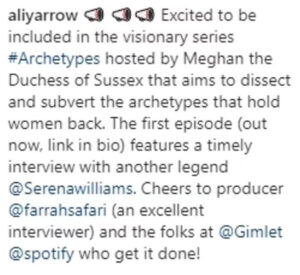In the past three years, the media landscape has experienced significant shifts, partly influenced by the pandemic, which intensified the pursuit of attention and engagement.
One intriguing storyline that emerged during this period was the remarkable rise and fall of Quibi. Quibi aimed to become the Netflix of short-form YouTube-style content, featuring Hollywood A-listers. However, Quibi overlooked a crucial factor—the inherent unapproachability that contributes to A-listers’ status. Furthermore, many A-listers have professions beyond content creation.
In contrast, YouTube has nurtured a genre of self-assured individuals who bootstrap their productions and build successful businesses. Numerous accomplished YouTubers are natural-born entrepreneurs, combining their entertaining abilities with an entrepreneurial mindset.
Ironically, Quibi managed to squander an astonishing $1.8 billion in funding, only to be sold for a mere $300 million, including its catalog of 10-minute shows. This failure highlighted that a name alone does not hold the same value in 2023 as it did in 2003 when content was scarce, and viewers had to adjust their schedules and endure 15-minute ad breaks between segments.
Nevertheless, the appeal of big names remains strong, as companies continue to take risks, relying on their established fan bases. One noteworthy example is the podcast deal between Prince Harry, Meghan Markle, and Spotify.
Recent reports reveal that the podcast deal between Prince Harry, Meghan Markle, and Spotify is ending, raising questions about the implications for the couple. The multi-year deal, valued at $20 million, was terminated prematurely after producing only 12 episodes. Bill Simmons, the head of podcast innovation and monetization at Spotify, openly criticized the couple, referring to them as “grifters” on his own podcast.
“I wish I had been involved in the ‘Meghan and Harry leave Spotify’ negotiation. The F–king Grifters. That’s the podcast we should have launched with them,” Simmons said on the June 16 episode of his podcast.

Interestingly, the Sussex family released only 12 episodes, and it has been reported that Markle did not even host all of them, choosing instead to have a producer conduct interviews with at least one guest. Markle later recorded her voiceover, similar to the process used in movies.
A screenshot from a guest’s Instagram confirms that Markle was not the one interviewing them.
This display of hubris is not entirely unprecedented. Like the Sussexes, the Obamas, often considered the US “royal” family, also had a podcast. However, their podcast notably excluded the Obamas themselves, which diminished its reach and excitement among listeners.
Over a year ago, the Obamas lost their Spotify deal. While the podcast’s performance was lackluster, the Obamas attributed its underperformance to Spotify’s exclusivity rather than questioning their own talent.
The Obamas were wiser in how they structured their media endeavors, utilizing a company to indicate their lower personal level of engagement. Their media company, Higher Ground, has encountered disagreements with Spotify regarding the number of shows featuring the Obamas. Additionally, Higher Ground has an exclusive agreement with Netflix for producing films and TV shows.
In April of this year, Higher Ground formed a partnership with podcasting platform Acast, known for hosting podcasts like “WTF With Marc Maron” and “Anna Faris Is Unqualified.” Acast specializes in integrating ads into podcasts and has maintained a presence in the industry for a considerable time, despite limited name recognition.
While the Sussexes aspired to emulate the Obamas, the Obamas have proven themselves as skilled producers. One of the most captivating documentaries of recent times is the 2019 Oscar-winning film “American Factory,” produced under their guidance.
This thought-provoking documentary provides a compelling portrayal of American society, examining its intricate relationship with unionization and capitalism. It is remarkable to witness such a powerful feature tied to individuals who have wielded significant political influence, delicately balancing between representing the people and appeasing donors.
Perhaps that’s a lesson that Harry and Meghan need to learn to capitalize on their cultural relevance.
As the media landscape continues to evolve, we can’t help but wonder if the era of mega stars is over. Maybe it will usher in a time where a different kind of talent shines in the spotlight—talent that delivers compelling content and production value and understands how to leverage a fan base beyond extravagant deals with doomed conglomerates.
